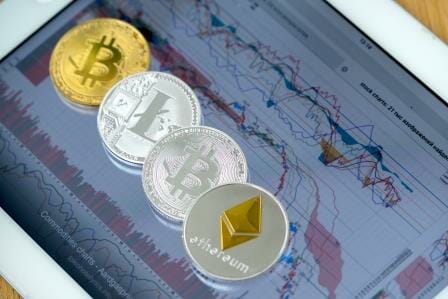The number of Argentines who receive their salary in digital assets on Bitwage grew 250% in the pandemic. They estimate that most do so in stable coins and allocate a part to bitcoin as an investment.
Globalization unlocked a new situation, and more and more young professionals are choosing to work as freelancers or applying for remote jobs from abroad with prominent salaries in dollars paid in digital assets; in many cases, it is even their first job.
This phenomenon happened among qualified people who live in nations with low wages and too many restrictions to receive international currencies, such as Argentina. So, they find in digital assets a solution to get a freelance or remote job from abroad and get a better-paid salary.
The platform highlighted that, during the pandemic, its users in Argentina grew 250%, along with a standard monthly income per person of at least USD 2,500 in digital assets. Such a figure allows Argentines to have a higher purchasing capacity than what local jobs offer.
The platform also highlights that Argentines who offer services abroad represent the country’s largest export sector, after the oilseed-cereal industry. Exports of services represent a source of value due to the creation of jobs and the income in foreign currency.
For this reason, they hope that using their network to collect their salaries from abroad in digital assets will keep evolving in Argentina. Although they highlight that their service works globally, it comes from the United States of America, and it got founded in 2014.
Generation D Gets Better-Paying Jobs and Works Remotely
According to the latest report, the services industry exported from Argentina had an income of USD 5,700 million in 2020. Computing, programming, and design were the sectors with more significant performance.
The company indicates that many young people who export these services have never entered the local traditional labor market. They have begun their professional experience offering their services as freelancers.
The entity highlight that young people tend to adapt to their needs, and values, such as freedom, anonymity, remote work, flexibility, and dynamism. For this reason, they describe this group of workers as the decentralized generation.
They explain that they identify themselves as not wanting to work in an office from Monday to Friday from 8:00 a.m. to 5:00 p.m. They prefer to have a job they can do in their notebook from a remote place, meeting goals with flexible deadlines or fixed days.
Generation D Breaks with the Traditional Work Scheme
Most users get paid in stable coins, so they collect and save in stable coins, and what they need for daily expenses they convert to the local currency, such as Argentine pesos.
Likewise, users usually allocate a small part of their salary to bitcoin as an investment because they think about a high peak in the price over time. Most users configure this feature so that the conversion to BTC gets done automatically as soon as they charge.
Thus, they keep an organized investment strategy in bitcoin and avoid purchasing impulsively and according to their emotions. Meanwhile, they put their savings in stable coins and transfer what they need for daily expenses to their local currency. This situation is the new reality for more and more youngsters who work as freelancers or remotely abroad.
By Jenson Nuñez











